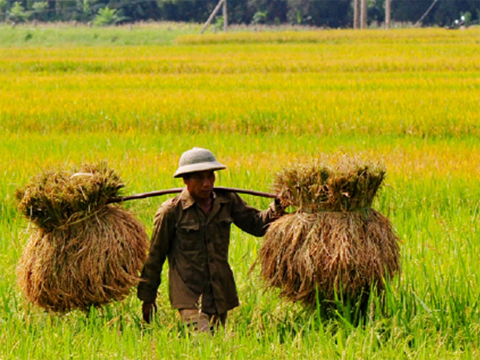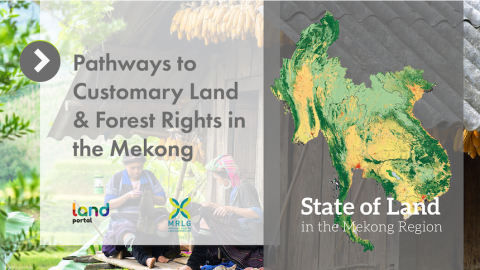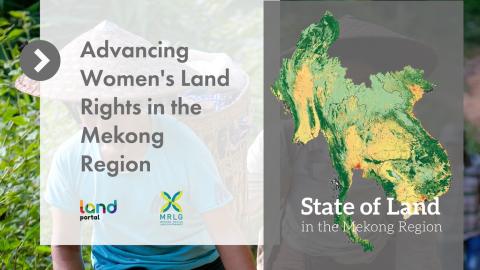Discover hidden stories and unheard voices on land governance issues from around the world. This is where the Land Portal community shares activities, experiences, challenges and successes.
 Follow our
Follow our
Sustainable Development Goals
Blog Series!
Interested in land corruption?
Follow our Land & Corruption Blog Series
for in-depth perspectives from the experts.
Issues
Geographical focus
Jordan’s 9.1 million people are facing serious environmental challenges. Land degradation due to over- exploitation of vegetation, and unsustainable agriculture and water management practices, have resulted in lack of fodder for livestock and reduced land productivity. This in turn has forced many of the country’s nomadic Bedouin people to abandon pastoralism and move to cities.
Third Arab Land Conference Session Summary
Women’s secure access to land, housing, and resources is a fundamental pillar of economic stability, social inclusion, and sustainable development. Across the Arab region, however, legal barriers, customary norms, and institutional challenges continue to restrict women’s land tenure rights, limiting their ability to invest, build wealth, and participate in decision-making.
Third Arab Land Conference Session Summary
Third Arab Land Conference Session Summary
The High-Level Session on Land Management in Times of Crisis at the Third Arab Land Conference convened policymakers, experts, and practitioners to explore how effective land governance can mitigate these challenges, prevent future conflicts, and drive resilience.
Third Arab Land Conference Session Summary
In a rapidly urbanizing Arab region facing pressing challenges such as climate change, land scarcity, forced displacement, and governance gaps, the Third Arab Land Conference convened in Morocco to chart a path forward. Ministers, international experts, and key stakeholders gathered to discuss sustainable land governance, investment-driven solutions, and inclusive policies to foster stability, economic growth, and social equity.
On January 23, 2025, the Land Portal Foundation and Mekong Region Land Governance (MRLG) convened a webinar to explore the evolving landscape of agricultural investments in the Mekong region. Experts from various sectors joined to discuss the impact of industrial crops, smallholder farmer integration into transnational value chains, and the resulting economic, environmental, and social transformations.
The webinar “Pathways to Customary Land & Forest Rights in the Mekong” took place on July 2nd, 2024. This was the second webinar in the series ‘State of Land in the Mekong region’ which aims to highlight the evolving environment of land governance in this dynamic region, including Cambodia, Lao PDR, Myanmar and Vietnam. The webinar attracted 240 participants and featured experts from the Mekong region.
This webinar took place on February 15th, 2024, under the title “Women’s Participation in Land Governance in the Mekong : Moving Beyond Quotas to Meaningful Inputs and Influence”. The webinar featured panelists from researchers to youth representatives and was jointly organized by the Land Portal Foundation and Mekong Region Land Governance (MRLG).
Sr. Elizabeth Daley, Independent freelance consultant and Chair of the Land Portal Foundation, moderated the panel, which featured the following speakers:
Maize is a key global cash crop, produced in every continent except Antarctica. As a flex crop, it has multiple uses including for direct human consumption, as an ingredient for animal feed, as a key component in processed foods, or in ethanol production. According to figures from FAOSTAT, global production increased from 0.2 to 1.2 billion tons between 1961 and 2020.
Curating land information is part of our daily work in the Land Portal. It includes selecting, categorizing, and enriching information with analysis and/or additional data, graphic visualizations, etc. In times with so much information available to choose from, people are increasingly seeking sources that offer selections of high-quality knowledge and provide analysis that make sense of it. Understanding how partners in the land community are meeting this demand is a great source for us to improve our work of curating, and providing meaning to land data.
The effectiveness of sustainable land use governance can be undermined if local affected people perceive land-use policies as not reflecting social objectives, or as ‘unjust.’ To transform externally-conceived sustainability principles from the international level into on-the-ground practice, involves the interplay of various organizations and peoples from the government, civil society, and the private sector.
Early this year, the Arab region saw a series of webinars and meetings about the status of land-related information and data.









